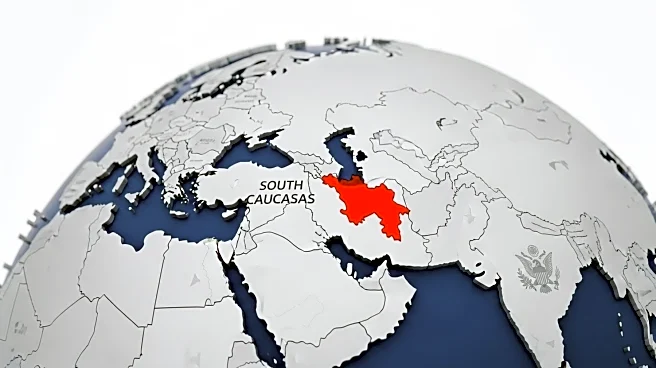What's Happening?
The United States is actively working to diminish foreign influence in the South Caucasus region, focusing on infrastructure development that bypasses Iran. This initiative includes the construction of highways, railways, energy pipelines, and telecom infrastructure, facilitating a direct connection between Azerbaijan and Nakhchivan. The strategic move aims to reduce Iran's influence in the region, as highlighted by the meeting between Russian President Vladimir Putin and Ali Akbar Velayati, a top adviser to Iran’s supreme leader, near Moscow in 2018.
Why It's Important?
The U.S. strategy in the South Caucasus is significant as it seeks to alter the geopolitical dynamics by reducing Iran's influence. This could lead to increased stability and economic growth in the region, benefiting local economies and potentially fostering stronger ties with Western nations. The infrastructure projects could also enhance energy security and connectivity, providing alternative routes for energy supplies that bypass traditional channels controlled by Iran.
What's Next?
Future developments may include further U.S. investment in regional infrastructure and diplomatic efforts to strengthen alliances with South Caucasus nations. The geopolitical shift could provoke reactions from Iran and Russia, who may seek to counterbalance U.S. influence through their own strategic initiatives.
Beyond the Headlines
The U.S. involvement in the South Caucasus could have long-term implications for regional security and economic integration. It may also influence broader international relations, as countries in the region navigate their positions between Western and Eastern powers.











